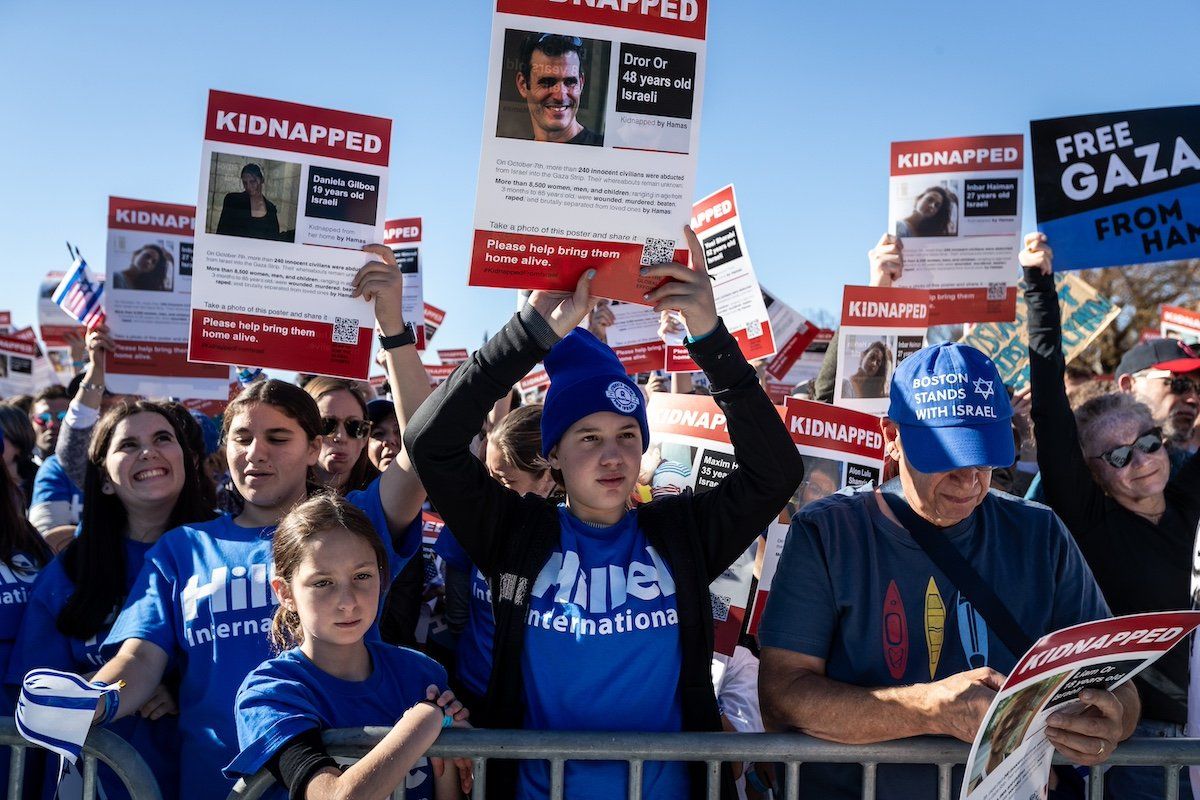Reports continue to circulate of a possible deal between Israel and Hamas that would see the release of as many as 70 women and children held hostage in Gaza since Hamas abducted them on Oct. 7. In exchange, Israel would grant a five-day cease-fire and possibly liberate a number of Palestinian women and children jailed in Israel on minor charges.
The talks have been mediated by the government of Qatar, which maintains good relations with Hamas — the group’s political leadership lives in Doha, and the emirate has, with Israel’s permission, funded the Hamas-run civil service of the Gaza Strip for years.
The Israeli government has come under growing pressure to secure the release of the hostages, even as it pursues its goal of eradicating Hamas. On Tuesday, some of the hostages’ family members began a five-day march from Tel Aviv to Prime Minister Benjamin Netanyahu’s home in Jerusalem.
But the Israeli government’s own war aims may complicate prospects for the hostages, says Jerusalem-based activist Gershon Baskin, who has negotiated high-profile hostage releases with Hamas in the past.
“How do you fight a war against someone you aim to destroy,” he asks, “and at the same time negotiate with them on humanitarian release of people that they’re holding?”
Baskin cautions that rumors of any impending deal are “noise” and also warns that with IDF forces pushing deeper into Gaza, the time frame for securing a deal is closing.
“I think we have a matter of days left for a negotiated agreement to at least release part of the hostages — the women, the children, and the elderly,” he says. “Very soon, the Israelis will have to go on search-and-rescue missions for them instead.”
For our full interview with Baskin, tune in to this week’s episode of our PBS television show GZERO World with Ian Bremmer.
